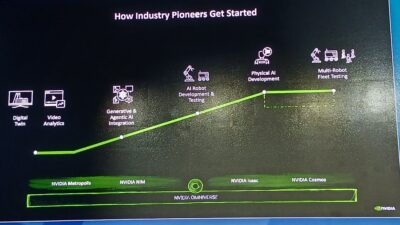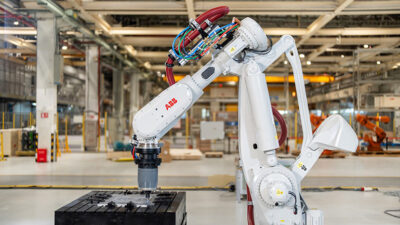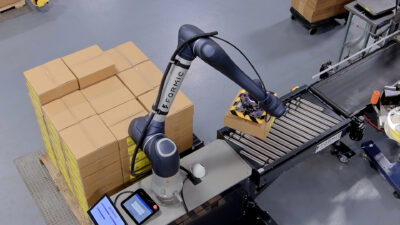Faster startup, redeployment and return on investment (ROI) are among the key reasons for using plug-and-play peripheral effectors and sensors with collaborative robotics.

Collaborative robots, which can be used in an industrial setting and operate collaboratively with humans with appropriate risk assessments and mitigation, can be made even simpler to deploy when coupled with plug-and-play peripheral devices. Such devices – end effectors to actuate or sensors to measure or both – can lead to productive activity more quickly when they can plug and play, according to Early Ewing, UR+ product manager – Americas, Universal Robots USA Inc.
Faster robot integration
Less configuration through easier-to-integrate robotics is useful for many reasons, including:
- Changes in manufacturing have driven the need for “plug and play” peripheral devices for collaborative robots. Ewing said changing market demands and changing demographics make automation more necessary and easier-to-use faster to integrate automation adds productivity more quickly.
- Plug-and-play devices are important for collaborative robots because they can improve customer experience and enhance return on investment (ROI) in the initial and subsequent implementations.
Collaborative robots, which are generally easier to implement than traditional robots, can be applied in diverse applications including assembly, injection molding, lab analysis, machine tending, packaging and palletizing, pick and place, quality inspection, welding, and more.
Plug-and-play peripherals, with hardware and software elements that are easier to use, can make more sense in robots operating collaboratively. In such applications, robots often can be easily relocated, have frequent human interactions, operate in a shared space, have frequent tool changes, and can add ROI more quickly.
To learn more on peripherals for collaborative robots, see the webcast on June 13 (archived afterward for 1 year), “Plug and Play Peripherals for Collaborative Robots.”
Mark T. Hoske is content manager, Control Engineering, CFE Media, [email protected].
KEYWORDS: Collaborative robots, robotics.
Robot peripheral devices can be plug and play.
Ease of use helps collaborative robots to be productive more quickly.
ROI is faster when setup and reconfiguration is easier.
Consider this
How easily can your robotic platform integrate with needed effectors and sensors?




